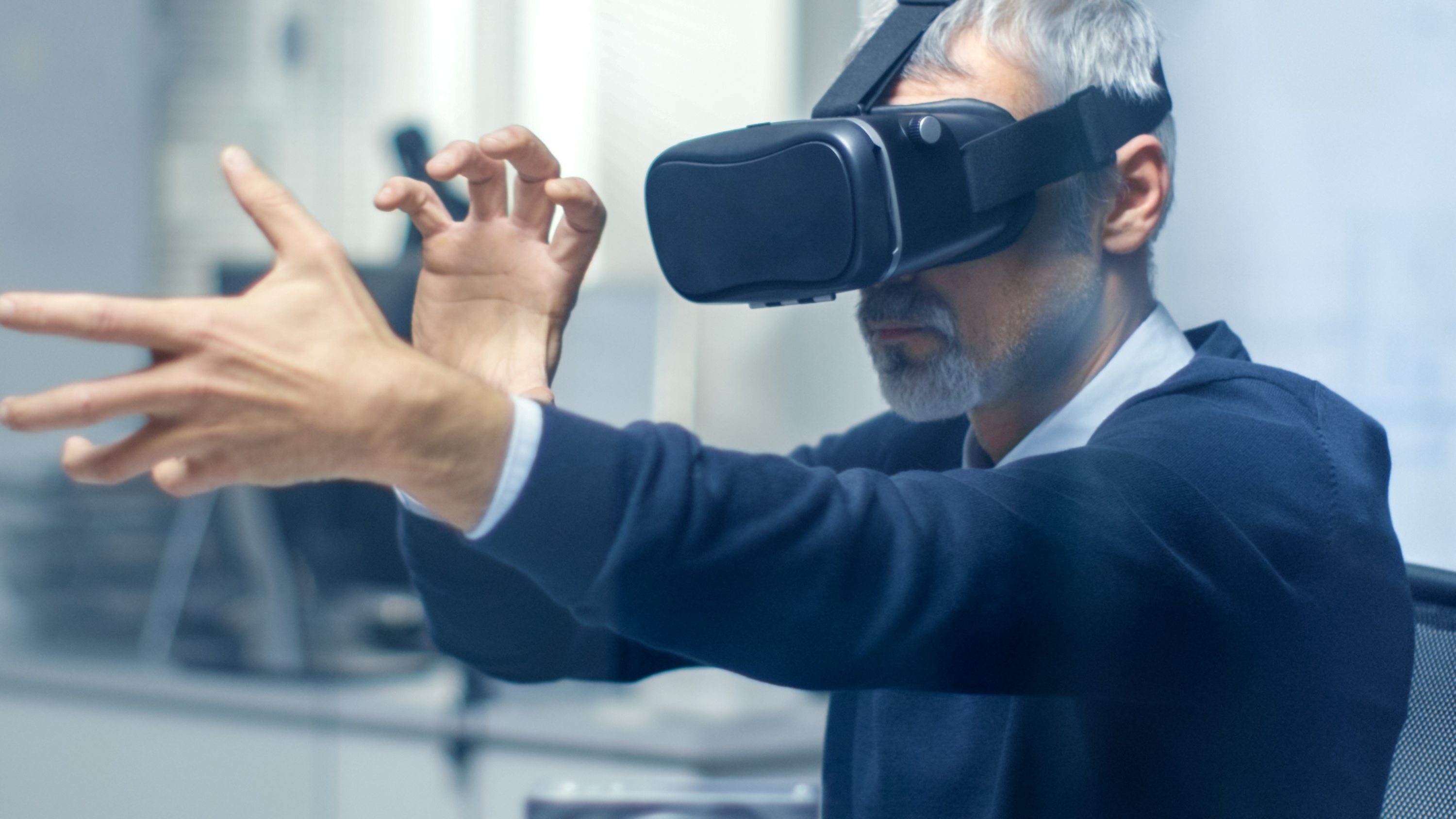
Recent work from the University of Cambridge has found that virtual reality (VR) could be more effective in detecting early Alzheimer’s disease than traditional cognitive tests. With over 525,000 UK citizens living with the disease, the researchers’ work has great implications for the use of technology in diagnosing and monitoring the neurological disease. This research was recently published in the journal Brain.
The research builds on the 2014 work from Professor John O’Keefe of the University College London, which identified a mental “satnav” of one’s current and previous locations that aids in navigation. O’Keefe received the Nobel Prize in Physiology or Medicine for “discoveries of cells that constitute a positioning system in the brain’ for this research.
A brain region known as the entorhinal cortex plays a key role in this internal navigation system and is one of the first areas to be damaged by Alzheimer’s disease. This is why one of the first symptoms of the disease is impaired navigation and subsequently getting lost.
A shortcoming of the traditional cognitive tests used to detect early symptoms of Alzheimer’s is that there is no test for navigational impairment. To address this, scientists from the Department of Clinical Neurosciences at the University of Cambridge collaborated with Professor Neil Burgess from UCL to create a VR navigation tests for patients. The Cambridge researchers were led by Dr. Dennis Chan, formerly a PhD student under Professor O’Keefe.
The test is conducted with the patient wearing a VR headset as they go through a navigation test in a simulation. To complete the course the user must have a functioning entorhinal cortex, so in theory, those with early Alzheimer’s disease would have hindered navigation in the test.
“We’ve wanted to do this for years, but it’s only now that virtual reality technology has evolved to the point that we can readily undertake this research in patients,” Dr. Chan explained.
To test their innovative VR system, the researchers gathered a cohort of 45 patients from the Cambridge University Hospitals NHS Trust Mild Cognitive Impairment (MCI) and Memory Clinics. These MCI patients usually present symptoms such as memory impairment that are often indicative of Alzheimer’s disease, but these symptoms can also be characteristic of normal aging or anxiety. The researchers note that it is imperative to identify the cause of MCI to predict which patients are more likely to develop Alzheimer’s or similar dementia conditions.
These participants had samples of their cerebrospinal fluid taken to identify biomarkers of Alzheimer’s, then had these results compared to their performance on the VR test. 12 of the 45 MCI patients tested positive on the biomarker test, and 41 healthy controls were included in the study for comparison.
The team found that all of the MCI patients did worse on the navigation test than the healthy participants, but the MCI patients who tested positive for Alzheimer’s biomarkers performed worse on the test than those with no biomarkers. It was also noted that the VR navigation test was better at differentiating between low and high-risk MCI patients than the cognitive tests currently considered to be the gold standard in detecting early Alzheimer’s disease.
“These results suggest a VR test of navigation may be better at identifying early Alzheimer’s disease than tests we use at present in clinic and in research studies,” said Dr. Chan.
Cambridge University scientists developed and trialled a VR navigation test in patients at risk of developing dementia https://t.co/NT8Sj0XcYa
— i newspaper (@theipaper) May 24, 2019
READ MORE: Virtual Reality Helping those with Parkinson’s Disease Walk
Source: University of Cambridge







 © 2025 Mashup Media, LLC, a Formedics Property. All Rights Reserved.
© 2025 Mashup Media, LLC, a Formedics Property. All Rights Reserved.